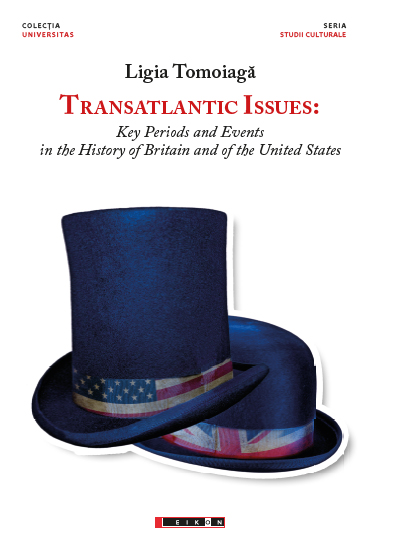Descriere
Transatlantic issues: Key Periods and Events in the History of Britain and of the United States - Ligia TOMOIAGA
Intelegerea profunda a unei limbi straine presupune o cunoastere atat a vocabularului respectivei limbi, a regulilor combinatorii care se definesc in termeni lingvistici, precum si a istoriei culturii si civilizatiei popoarelor care se exprima nativ in acea limba. Limba este reflectarea tuturor acestora si ca fenomen viu trebuie studiata in evolutia sa, in diacronicitatea si sincronicitatea ei. Este foarte greu sa studiezi gramatica si literatura unui popor fara a avea cunostinte despre fundalul istoric si cultural al devenirii sale. Aceste repere in cazul limbii engleze sunt si mai relevante: limba engleza se vorbeste ca limba oficiala in multe tari si este rezultatul a multe interferente lingvistice, istorice si culturale. Astfel, chiar si studentii filologi, care se concentreaza pe studierea limbii si literaturii engleze, au nevoie de o introducere in istoria Marii Britanii, a Statelor Unite, a Australiei, a Canadei, a Africii de Sud, etc. * * * A thorough mastering of a foreign language entails both knowledge of the vocabulary of that particular language, of the combinatory rules that define it from a linguistic point of view, and knowledge of the culture and the civilization of the peoples that use that mother tongue. Language is the reflection of all of the above, and, as a living phenomenon it has to be studied in its evolution, in its diachronic and synchronic development. Such landmarks are even more important in the case of English: English is spoken as an official language in many countries, and it is the result of several linguistic, historical and cultural interferences. Thus, even students in philology, who concentrate on the study of English language and literature, do need an introduction in the history of Great Britain, of the United States of America, of Australia, of Canada, of South Africa, etc.

